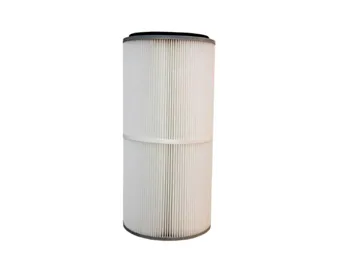 Tel:
+8615930870079
Tel:
+8615930870079
Dec . 03, 2024 17:28 Back to list
stainless steel filter element
The Importance and Versatility of Stainless Steel Filter Elements
In the world of filtration, stainless steel filter elements have emerged as a crucial component across various industries. Known for their durability, corrosion resistance, and superior filtration capabilities, these filter elements play a vital role in ensuring the purity and safety of fluids and gases in diverse applications. This article delves into the significance, types, applications, and advantages of stainless steel filter elements.
Understanding Stainless Steel Filter Elements
Stainless steel filter elements are designed to separate impurities and particulates from liquids and gases. Made from a combination of iron, chromium, and varying amounts of other metals, stainless steel is an alloy known for its sanitation properties, resistance to rust and oxidation, and ability to withstand high temperatures and pressures. These attributes make stainless steel an ideal material for filter elements used in challenging environments.
Types of Stainless Steel Filter Elements
Stainless steel filter elements come in various forms, each tailored to meet specific filtration needs. Some common types include
1. Wire Mesh Filters Constructed from woven stainless steel wire, these filters provide excellent flow rates and are ideal for coarse filtration. They are reusable and easy to clean, making them cost-effective for numerous applications.
2. Sintered Filters Made by fusing stainless steel powder into a solid form through heat and pressure, sintered filters offer uniform pore sizes and high mechanical strength. They are suitable for fine filtration and are often used in applications requiring high purity.
3. Cartridge Filters These cylindrical filters may contain multiple layers of stainless steel mesh or sintered steel, designed for various filtration stages. They can be easily replaced and are commonly used in industrial processes for both liquid and gas filtration.
4. Disc Filters Used in applications where space is limited, disc filters are compact and effective for various filtration tasks. They can be stacked to increase filtration surface area while maintaining low resistance to flow.
Applications of Stainless Steel Filter Elements
The versatility of stainless steel filter elements makes them applicable in numerous sectors
1. Food and Beverage Industry Stainless steel filters ensure product purity and compliance with health regulations. They are used in processes like beer brewing, wine production, and dairy processing where sanitation is paramount.
stainless steel filter element

2. Oil and Gas Industry In this sector, stainless steel filter elements are vital for separating impurities from crude oil and natural gas, protecting equipment and ensuring process efficiency.
3. Pharmaceuticals The stringent quality standards of this industry necessitate the use of stainless steel filters for sterile filtration, safeguarding the efficacy and safety of medical products.
4. Water Treatment Stainless steel filter elements are employed in various water treatment applications to remove particulates, ensuring clean and safe drinking water.
5. Aerospace and Automotive These filters are used to keep fuel and lubrication systems free from contaminants, enhancing the reliability and safety of engines.
Advantages of Stainless Steel Filter Elements
1. Durability Stainless steel’s inherent strength allows these filters to withstand harsh conditions, reducing the need for frequent replacements and maintenance.
2. Corrosion Resistance Unlike other materials, stainless steel filters resist corrosion from chemicals, moisture, and other environmental factors, ensuring consistent performance over time.
3. High Filtration Efficiency With precise pore sizes, stainless steel filter elements effectively capture a wide range of particulates, enhancing fluid purity.
4. Reusability Many stainless steel filters can be cleaned and reused, making them a sustainable and economical choice compared to disposable filters.
5. Versatility Available in various designs and sizes, stainless steel filter elements can be customized to meet specific filtration requirements across different industries.
Conclusion
In summary, stainless steel filter elements are indispensable in maintaining the integrity of fluids and gases in countless applications. Their durability, efficiency, and versatility make them a preferred choice for industries ranging from food and beverage to pharmaceuticals. As technology advances, the development of more innovative stainless steel filtration solutions is likely, further enhancing their role in ensuring quality and safety in various processes.
-
Types and Applications of Air Filtration CartridgesNewsJul.28,2025
-
The Role of Gas Turbine FiltersNewsJul.28,2025
-
Mastering Air Filter Cartridge UseNewsJul.28,2025
-
Advanced Turbine Filters for Modern Gas TurbinesNewsJul.28,2025
-
Cellulose Air Filter Cartridge Advantages in Dust FiltrationNewsJul.28,2025
-
Cellulose Filters for Air Particle ReductionNewsJul.28,2025

 Email:
Email:





